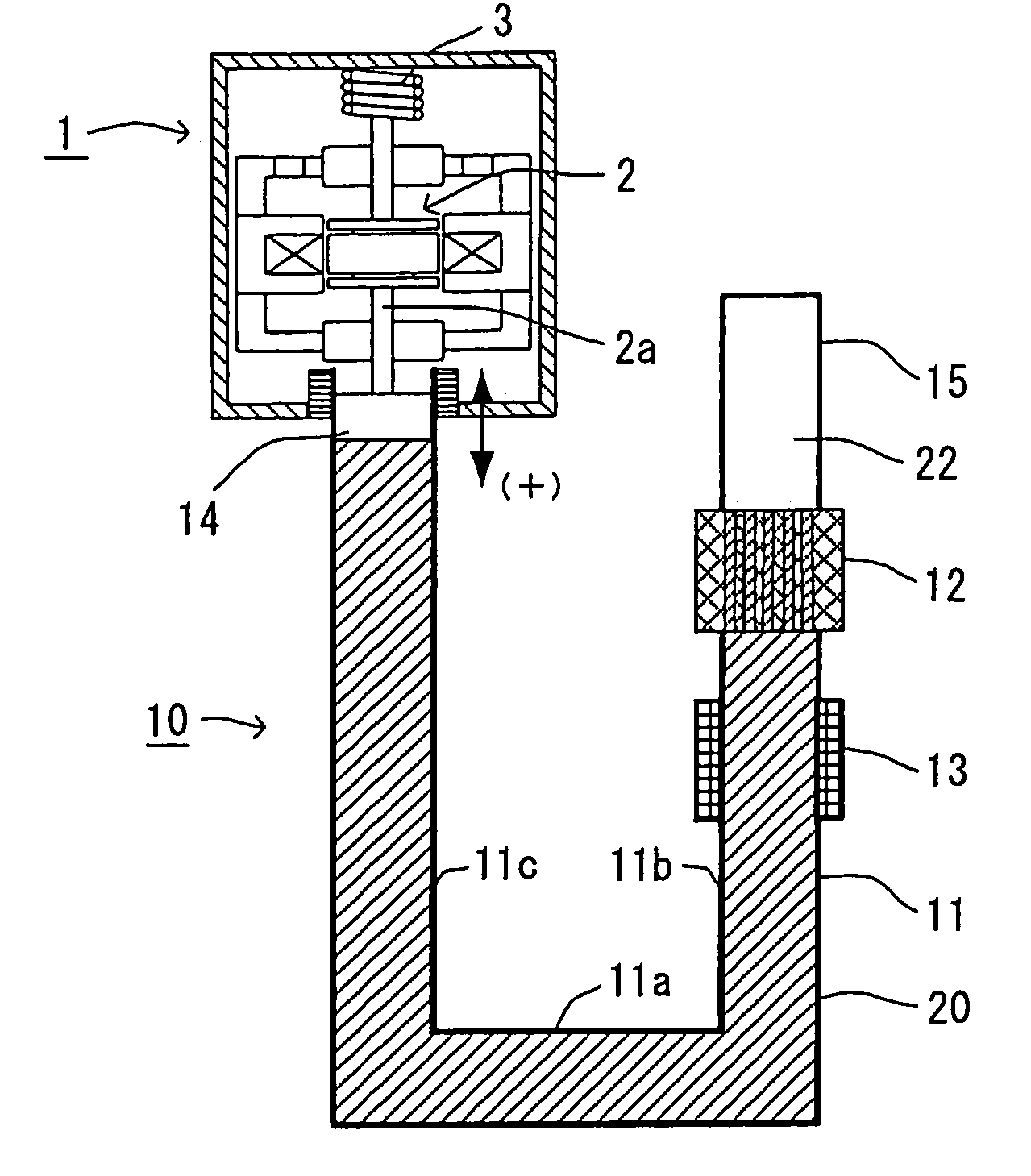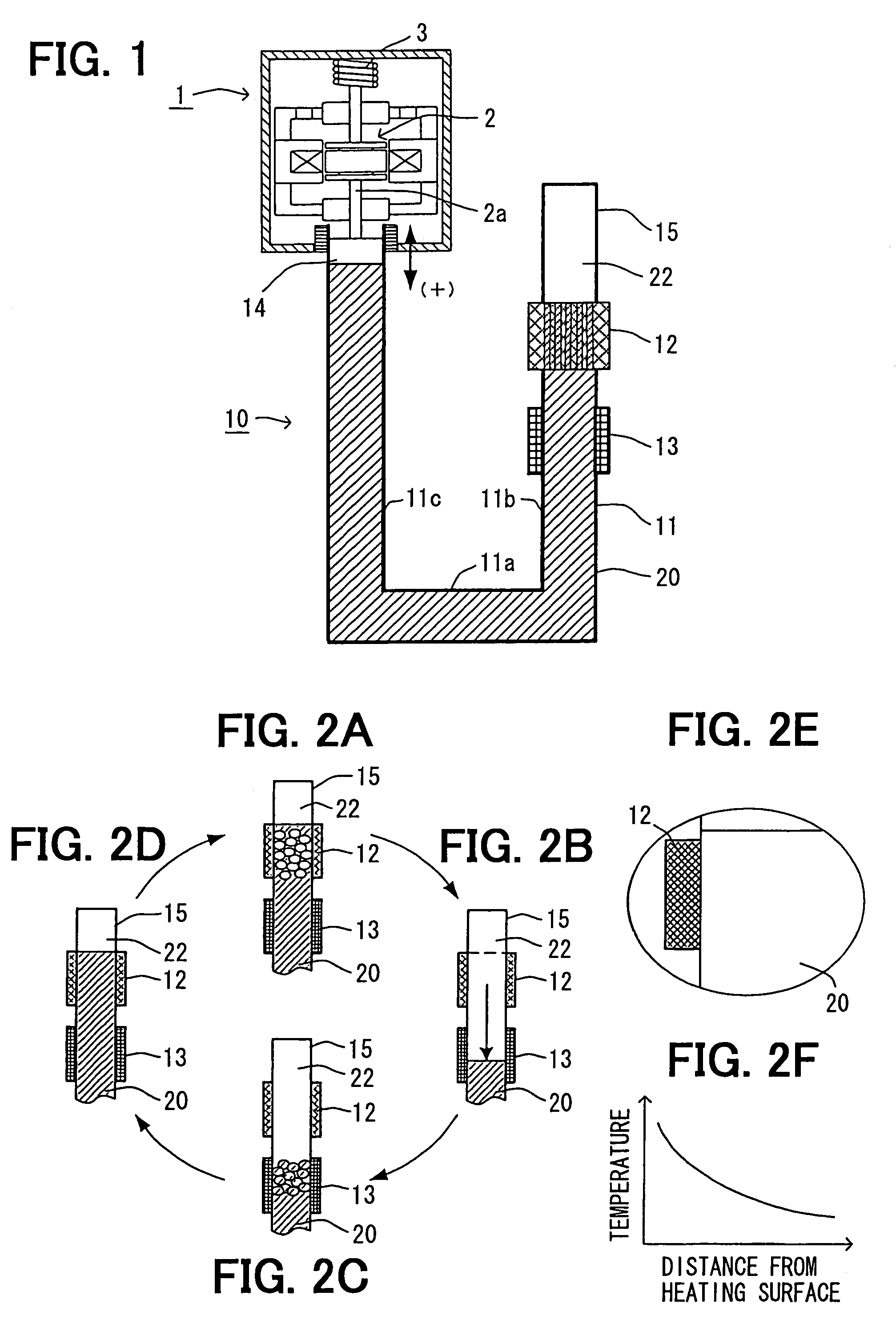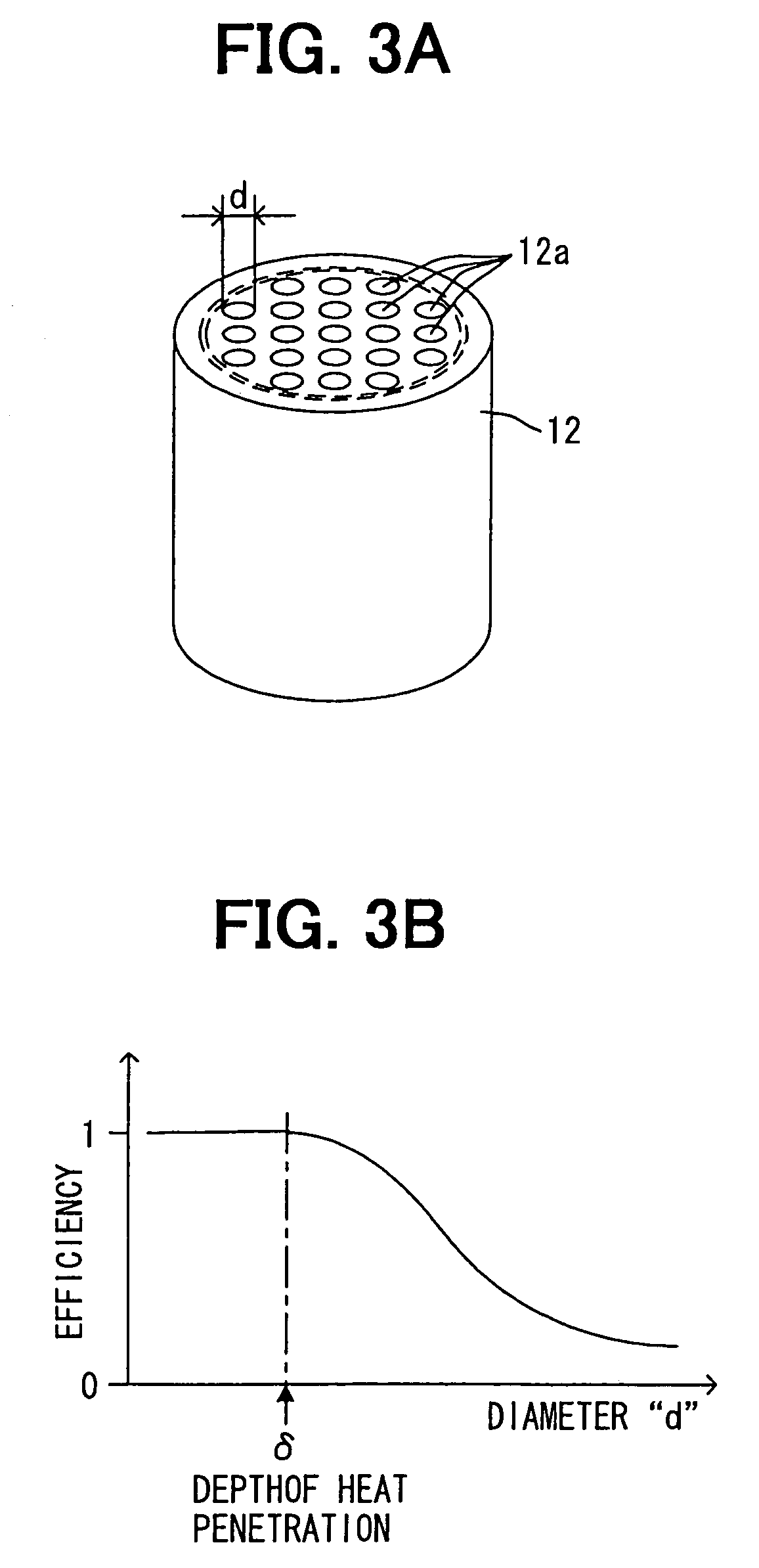Steam engine
a steam engine and steam technology, applied in steam engine plants, steam accumulators, machines/engines, etc., can solve the problems of large heat loss in steam engines, high heat loss in heating devices, and related parts or elements, which are opposed to high-temperature and high-pressure steam, and achieve reduced time for heating and vaporizing working fluid, reduce heat loss, and reduce the effect of tim
- Summary
- Abstract
- Description
- Claims
- Application Information
AI Technical Summary
Benefits of technology
Problems solved by technology
Method used
Image
Examples
first embodiment
(First Embodiment)
[0030]A first embodiment of the present invention will now be explained with reference to the drawings.
[0031]In the first embodiment, a steam engine is applied to a linear motor for displacing a moving element 2 in an electric power generator 1. FIG. 1 is a schematic view showing the steam engine 10 and the electric power generator 1 according to a first embodiment of the present invention.
[0032]The electric power generator 1 is a linear vibration actuator for generating electromotive force by displacing the moving element 2, in which a permanent magnet is embedded.
[0033]As shown in FIG. 1, the steam engine 10 has a fluid container 11 in which working fluid 20 is filled and the working fluid 20 can freely move (flow) therein, a heating device 12 for heating the fluid in the fluid container 11, and a cooling device 13 for cooling steam heated and vaporized by the heating device 12.
[0034]The fluid container 11 is preferably made of a heat insulating material, except ...
second embodiment
(Second Embodiment)
[0055]A second embodiment of the present invention is explained with reference to FIG. 4, showing a schematic view of a power generating apparatus according to the second embodiment of the present invention.
[0056]As shown in FIG. 4, the power generating apparatus comprises the electric power generator 1 and the steam engine 10, as in the same manner to the first embodiment, wherein the second embodiment differs from the first embodiment in that another pipe portion 11d is added to the first pipe portion 11b to form a circular pipe portion, a displacer 30 is provided above the heating device 12, an inert gas 22 is filled in the pipe portion below the displacer 30, the working fluid 20 is also filled in the other pipe portion 11d, and the displacer 30 is operated by a driving circuit 34.
[0057]The displacer 30 comprises a movable element 30a for closing an inside fluid passage of the circular pipe portion (11b, 11d) at a position above the heating device 12, and an a...
PUM
 Login to View More
Login to View More Abstract
Description
Claims
Application Information
 Login to View More
Login to View More - R&D
- Intellectual Property
- Life Sciences
- Materials
- Tech Scout
- Unparalleled Data Quality
- Higher Quality Content
- 60% Fewer Hallucinations
Browse by: Latest US Patents, China's latest patents, Technical Efficacy Thesaurus, Application Domain, Technology Topic, Popular Technical Reports.
© 2025 PatSnap. All rights reserved.Legal|Privacy policy|Modern Slavery Act Transparency Statement|Sitemap|About US| Contact US: help@patsnap.com



